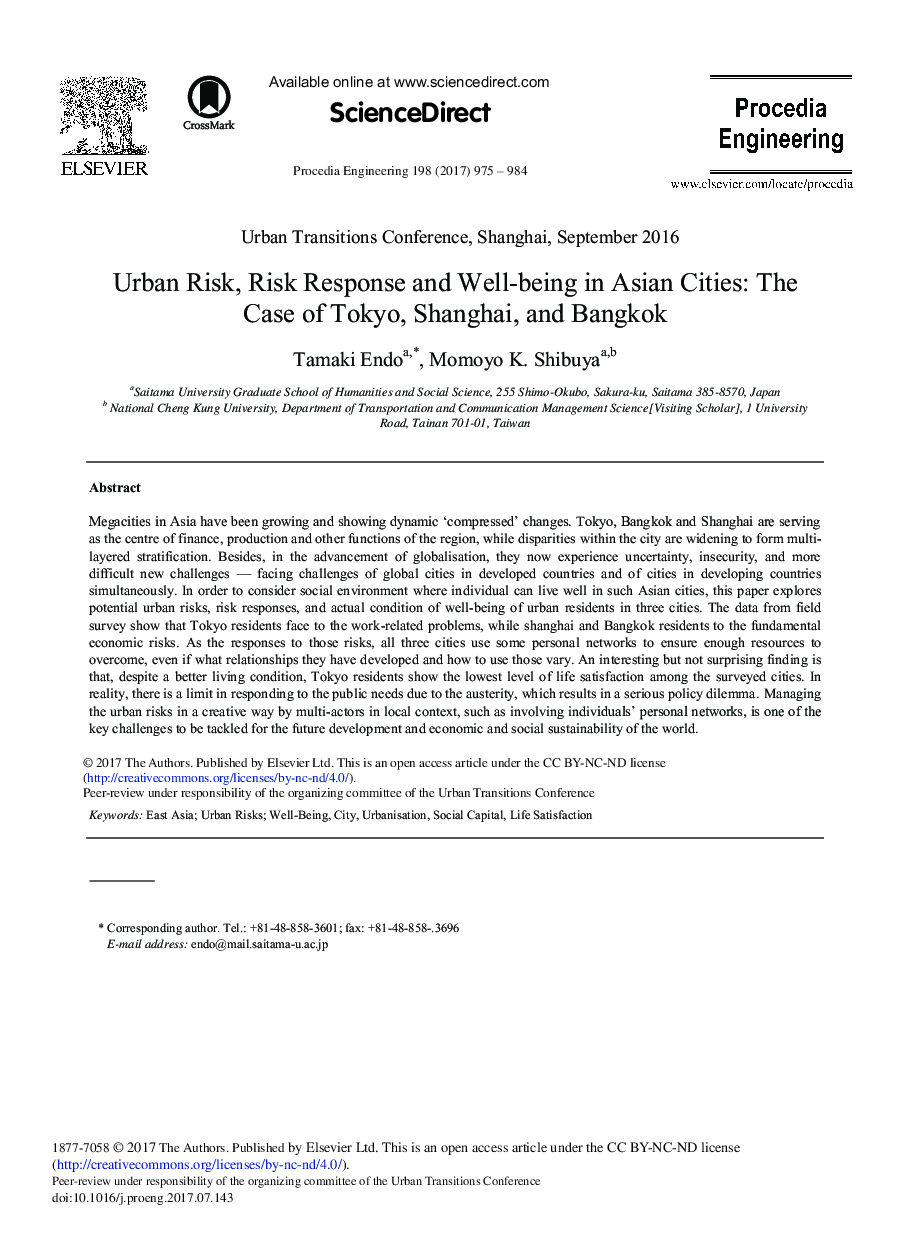| Article ID | Journal | Published Year | Pages | File Type |
|---|---|---|---|---|
| 5027454 | Procedia Engineering | 2017 | 10 Pages |
Abstract
Megacities in Asia have been growing and showing dynamic 'compressed' changes. Tokyo, Bangkok and Shanghai are serving as the centre of finance, production and other functions of the region, while disparities within the city are widening to form multi-layered stratification. Besides, in the advancement of globalisation, they now experience uncertainty, insecurity, and more difficult new challenges - facing challenges of global cities in developed countries and of cities in developing countries simultaneously. In order to consider social environment where individual can live well in such Asian cities, this paper explores potential urban risks, risk responses, and actual condition of well-being of urban residents in three cities. The data from field survey show that Tokyo residents face to the work-related problems, while shanghai and Bangkok residents to the fundamental economic risks. As the responses to those risks, all three cities use some personal networks to ensure enough resources to overcome, even if what relationships they have developed and how to use those vary. An interesting but not surprising finding is that, despite a better living condition, Tokyo residents show the lowest level of life satisfaction among the surveyed cities. In reality, there is a limit in responding to the public needs due to the austerity, which results in a serious policy dilemma. Managing the urban risks in a creative way by multi-actors in local context, such as involving individuals' personal networks, is one of the key challenges to be tackled for the future development and economic and social sustainability of the world.
Related Topics
Physical Sciences and Engineering
Engineering
Engineering (General)
Authors
Tamaki Endo, Momoyo K. Shibuya,
